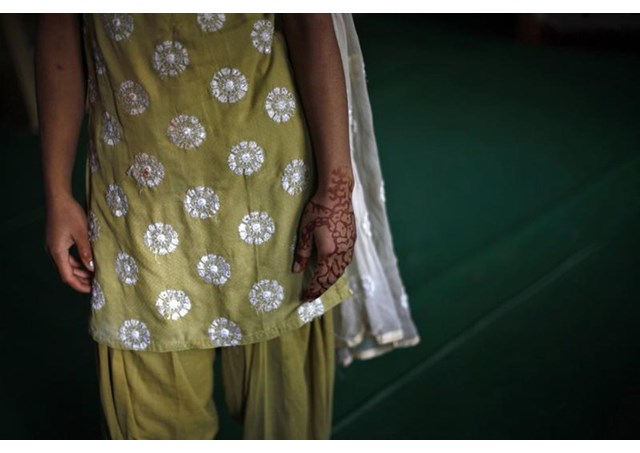
Nigeria Conference: Women religious in the forefront to fight trafficking

(Vatican Radio) As an important international conference on human trafficking wrapped up this week in Nigeria, it becomes more and more obvious that women religious have increasingly become the protagonists in the fight against this global scourge.
The history of their formidable battle against trafficking dates back to the earliest days of this modern evil and their insistent work has expanded to address all forms of trafficking, mobilizing millions of sisters and laywomen, and resulting in a myriad of concrete initiatives and organizations.
One such organization is RENATE, a European network of religious committed to work together against human trafficking and exploitation.
Represented in 25 European countries, RENATE members are working, alongside many other organizations around the world, to eradicate modern-day slavery.
RENATE was present in Abuja, Nigeria, to bring its experience and connect with other actors at the 3-day International Conference on Human Trafficking Within and From Africa organized by Caritas Internationalis and by the Pontifical Council for the Pastoral Care of Migrants and Itinerant People.
Vatican Radio’s Linda Bordoni asked RENATE communications person, Anne Kelleher, why women religious have become so committed to eradicating human trafficking and supporting its victims…
Anne Kelleher, who is a married laywoman with two children, says that this fierce commitment of women religious is what attracted her to working with RENATE in the first place.
She points out that while men are involved in trafficking particularly for labour, for begging and within the fishing industry, it’s predominantly a female orientated phenomenon – with the huge ‘sex trade business’ exploiting mostly women and girls.
Kelleher says the sisters, backed by their communities, are comfortable and at ease with themselves so they have no qualms to go out and discuss such matters, to relate to the persons involved, overcoming prejudices and fears and never neglecting to put the dignity of the human person at the center of their work.
“It’s not for the faint-hearted – allow me to say - and the women religious are the bravest of women, they are amazing and they are spearheading so much” she says.
Regarding the presence of RENATE at the International Conference hosted by Caritas Nigeria in Abuja, Keller says that being a network of religious in Europe it has connections with various congregations throughout the world and on the five continents.
One of the big attractions for this particular event, she explains, is that it was organized by Caritas Internationalis and by the Pontifical Council for the Pastoral Care of Migrants and Itinerant People that last year invited RENATE President, Imelda Poole, to participate in an event on trafficking which led to a greater commitment on the part of RENATE to extend beyond the borders of Europe particularly regarding the concern for ‘source’ countries; Africa, she says, is a significant source country in relation to women who are trafficked to Europe for sexual exploitation and labour.
Kelleher says she participated is in the Abuja conference with “a view to getting down to grass roots level with regards to source countries and getting to understand concepts of prevention, awareness raising and to explore possibilities for supporting at a local level, working within the network of religious in Africa and across the continents”.
Keller agrees that while awareness has risen enormously regarding the scourge of human trafficking – thanks above all to the repeated calls of Pope Francis to take action against this modern slavery – the trade represents ‘big business’ and poses a huge challenge.
She praises the Pope’s call to abide by a ‘moral imperative’ to take stock of what is happening to our brothers and sisters who are being trafficked and “to get out there and make a difference, educate, and protect”.
“Singing from the rooftops has helped to put the spotlight on this scourge but there is no denying that it’s a very lucrative industry and the people who are trafficking are exploiting the vulnerable; they are tapping into the fear factor, they are tapping into the push factors of poverty and the false offer of an alternative to people who are fleeing war zones, poverty, the side effects of climate change” she says.
So, she continues “we have to evolve in terms of how we address human trafficking, how we educate and make people aware and be respectful of cultural mores and at the same time be respectful of differences in the world - celebrating difference – but also maximizing our protection of the most vulnerable”.
Kelleher stresses the fact that no one wants to ‘come in and impose’ but rather ”work at grass roots level together within various communities and various cultures and work collaboratively not only to heighten awareness but to help people to look at the dignity of the human person”.
| All the contents on this site are copyrighted ©. |


